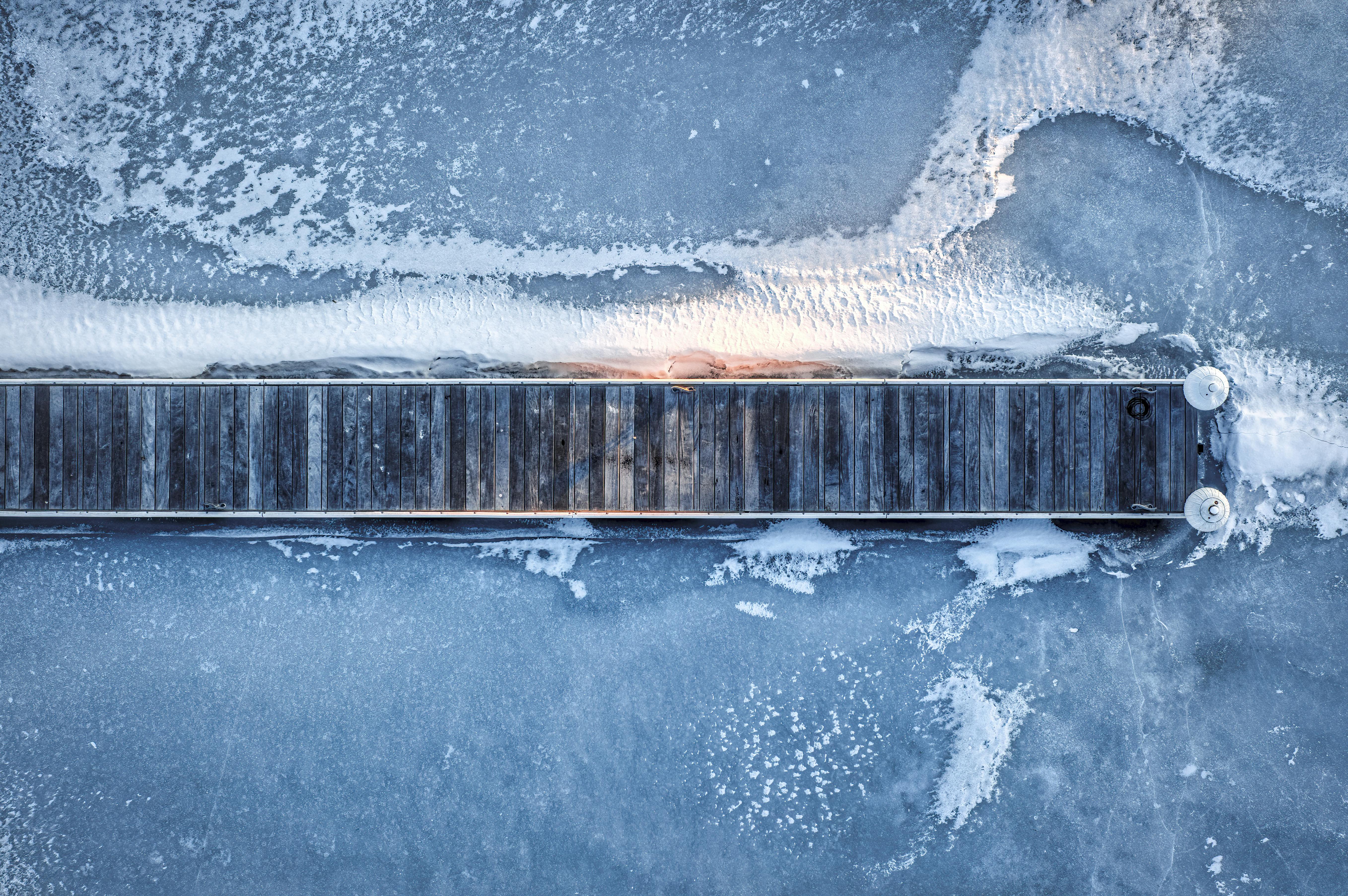A dehumidifier is a device that can be used to reduce the amount of moisture in the air in your home. It works by extracting water from the air and then collecting it in a tank or tray. This water is typically referred to as “condensate” and is not necessarily pure, distilled water. So, the answer to the question: Does a dehumidifier make distilled water? is no.No, a dehumidifier does not make distilled water. A dehumidifier reduces the level of humidity in a space by extracting moisture from the air. Distilled water is created through a process of distillation, which involves boiling water and then condensing the steam into pure water.
What Is Distilled Water?
Distilled water is a type of purified water that has had impurities and minerals removed from it. It is created by boiling water and then condensing the vapor back into a liquid. The condensed vapor does not contain any of the minerals or other contaminants present in the original water, so it is considered to be “pure” water. Distilled water is commonly used in medical settings, as well as in laboratories, steam irons and car batteries. It can also be used for drinking if it is treated with a small amount of minerals to make it taste better.
Distilled water can be made at home using a still, or purchased commercially in bottles or gallon containers. Water filters such as reverse osmosis systems can also create distilled water, although they may leave behind some trace amounts of minerals. Distilled water has many advantages over regular tap water; it is free from bacteria and other contaminants, so it is safer to drink than regular tap water. Additionally, it does not contain any dissolved minerals that can cause scaling and buildup on plumbing fixtures or appliances.
How Does A Dehumidifier Work?
A dehumidifier is an appliance which removes moisture from the air. It works by drawing in air from the surrounding area, passing it through a filter, and then blowing it back out into the room. The filter contains a desiccant material which absorbs the moisture from the air, reducing its relative humidity (RH) level. As the RH level drops, so does the temperature of the air. This process is known as dehumidification and is essential for maintaining healthy indoor environments.
Dehumidifiers come in many different sizes and types, depending on their intended use. Portable models are typically used to reduce humidity levels in small areas like bathrooms or laundry rooms while larger models are used to control humidity in larger spaces such as basements or warehouses. Some dehumidifiers also have built-in humidistats to detect changes in humidity levels and adjust their operations accordingly.
Most dehumidifiers use a refrigeration system to cool down the air and remove moisture from it as it passes through an evaporator coil. The evaporator coil contains a refrigerant which absorbs heat from the
How Is Distilled Water Made?
Distilled water is made through a process of distillation. In this process, water is heated to its boiling point so that it turns into steam. The steam is then collected and cooled, turning back into liquid form. This process removes impurities, such as bacteria and other contaminants, from the water. The resulting product is pure and safe for drinking.
The distillation process can be done on a large scale in a factory setting or at home with a simple apparatus called a still. In both instances, the same principles apply: heat the water to its boiling point so that it turns into steam and then collect and cool the steam until it returns to liquid form. As the steam rises, any impurities are left behind in the original container.
Once cooled, the distilled water can be collected in a separate container for drinking or use in other applications such as medical treatments or food preparation. It is important to note that distilled water does not contain any minerals that are found in regular tap water and must be supplemented with minerals if used for drinking purposes over an extended period of time.
The Benefits of Using a Dehumidifier
Using a dehumidifier can provide numerous benefits for your home and health. This device helps to reduce the amount of humidity in the air, which can be beneficial for those who suffer from asthma or allergies. By reducing the level of humidity, it can help to reduce dust mites, mold, mildew, and other allergens that can trigger asthma or allergy symptoms.
A dehumidifier also helps to reduce musty odors in the home that are caused by excess moisture in the air. This device can help to improve air quality by reducing the amount of allergens and odors in the house. In addition, it can help to reduce condensation on windows, walls, and other surfaces in the home that can lead to damage such as peeling paint or wallpaper.
Using a dehumidifier can also help to keep your home cool during hot summer months. It helps to reduce moisture in the air which makes it more comfortable inside. Additionally, it helps to make your home more energy efficient by reducing how often you need to use your air conditioner. By circulating dry

Advantages of Drinking Distilled Water
Drinking distilled water has a number of advantages. For one, it is free of impurities, making it much safer for consumption than regular tap water. Distilled water does not contain potentially hazardous chemicals such as chlorine and fluoride, which can be found in tap water. It also does not contain metals or minerals that can be harmful to your body, such as lead and arsenic. Furthermore, distilled water does not contain any bacteria or viruses which can make you ill.
Another advantage of drinking distilled water is that it is easier for your body to absorb the water compared to regular tap water due to its lack of impurities. As a result, your body can easily hydrate itself without having to process all the impurities found in regular tap water. This makes it easier for you to stay hydrated throughout the day and leads to improved health overall.
Finally, drinking distilled water is much better for the environment than drinking regular tap water. The process of distilling removes all contaminants from the source before it reaches your home, meaning no additional energy needs to be spent on treating the water before consumption. This means that with distilled water
How Can A Dehumidifier Help Make Distilled Water?
Distilled water is water that has been purified through a process of heating and cooling, which removes minerals and other impurities. This makes distilled water an ideal choice for those who prefer their drinking water to be as pure as possible. However, this process can be expensive and time consuming. A dehumidifier can help reduce the cost and time associated with making distilled water.
A dehumidifier works by removing moisture from the air, which in turn reduces the humidity level of a room or area. This low humidity level allows the heated air to move more easily through the cooling coils of a dehumidifier, resulting in better heat transfer efficiency. The cooler air then passes over a condenser, which collects the condensed water droplets created during the condensation process. This condensed water is then collected and can be used as distilled water.
Using a dehumidifier to make distilled water eliminates the need for expensive equipment such as stills or distillation columns, which are required for traditional distillation methods. It also requires less energy than traditional
Maintenance of Dehumidifiers
Dehumidifiers are a great way to keep the air in your home or office comfortable. However, like any other appliance, they require regular maintenance to ensure that they remain efficient and effective. Proper maintenance of dehumidifiers can help extend the life of the unit and increase its performance. Here are some tips for keeping your dehumidifier in good condition:
1. Cleaning: Make sure to clean the filter on your dehumidifier regularly according to the manufacturer’s instructions. A dirty or clogged filter can cause the unit to operate less efficiently and reduce its effectiveness at removing humidity from the air.
2. Regular Checks: It is important to check on your dehumidifier periodically to make sure it is operating properly. Check for any signs of wear and tear or damage that could affect its performance.
3. Refilling Water Tank: Many modern dehumidifiers have a water tank that needs to be emptied when it gets full. Make sure you empty the tank regularly, as a full tank can cause the unit to

Conclusion
No, a dehumidifier does not make distilled water. Dehumidifiers are designed to reduce the humidity in the air, and to collect any excess moisture in a reservoir for easy disposal. They are not designed to purify water for drinking or other uses. The only way to produce distilled water is through distillation, which requires specialized equipment and processes.
In summary, a dehumidifier does not make distilled water, but it can help you manage the humidity levels in your home, which can help protect your possessions from damage caused by excessive moisture.

